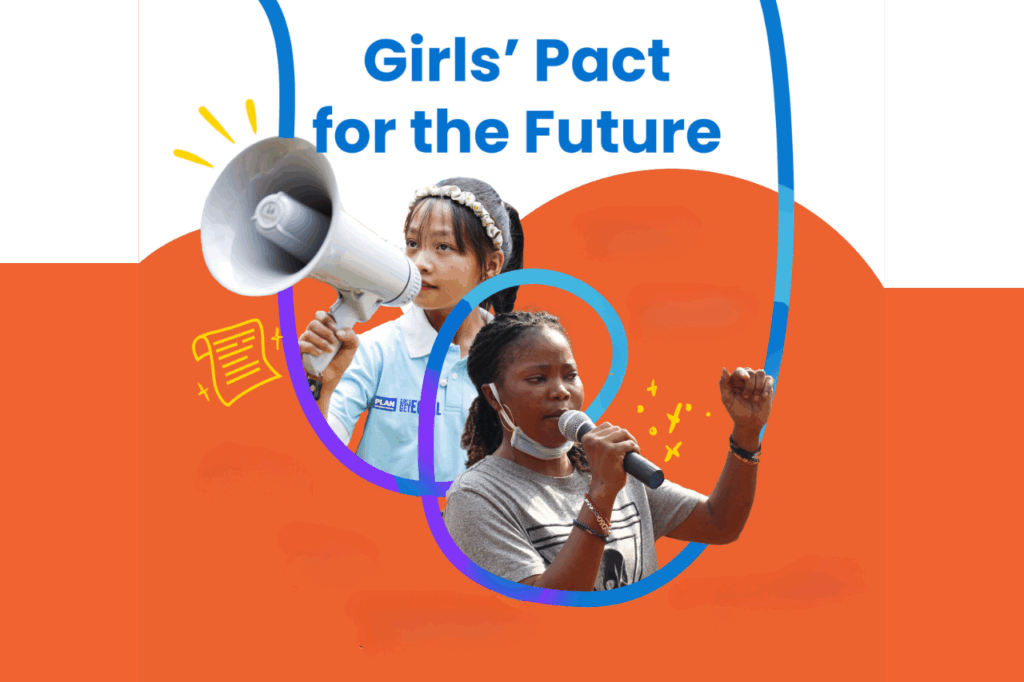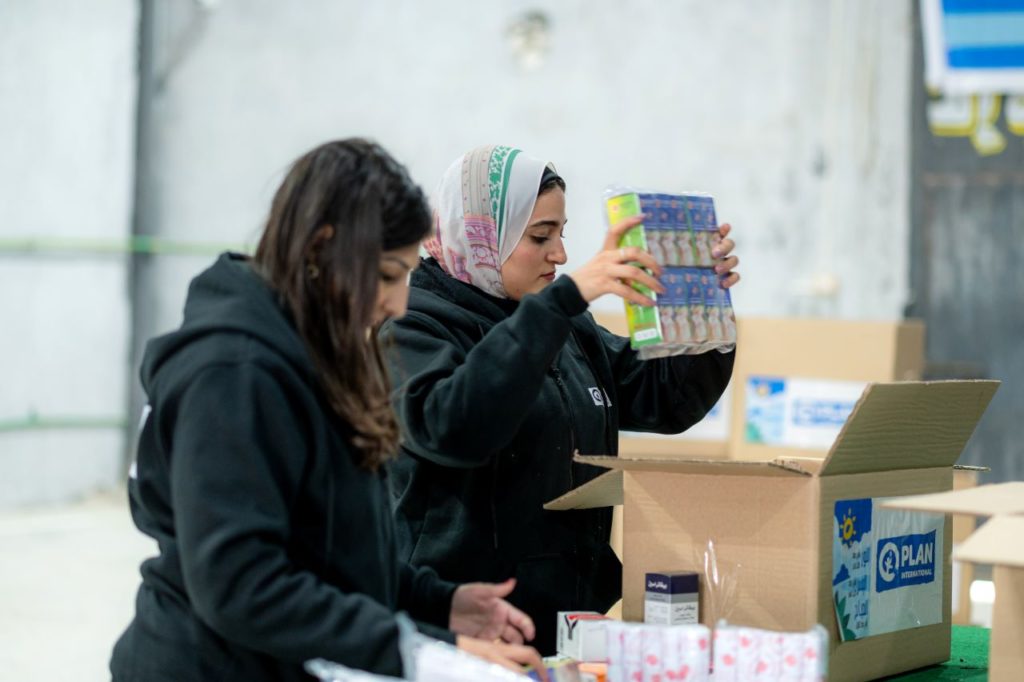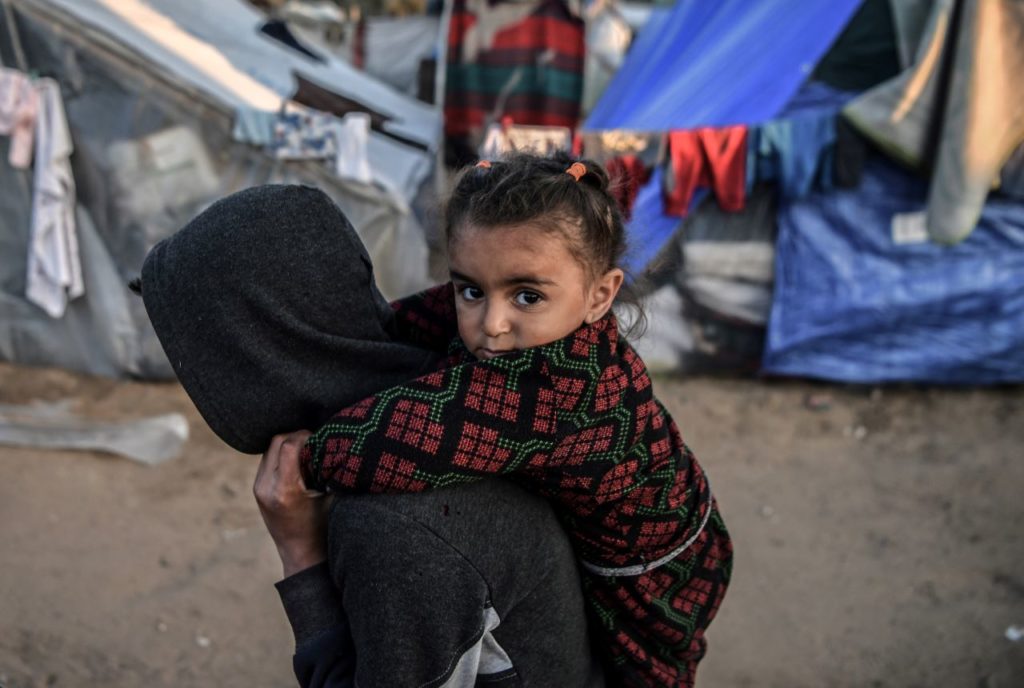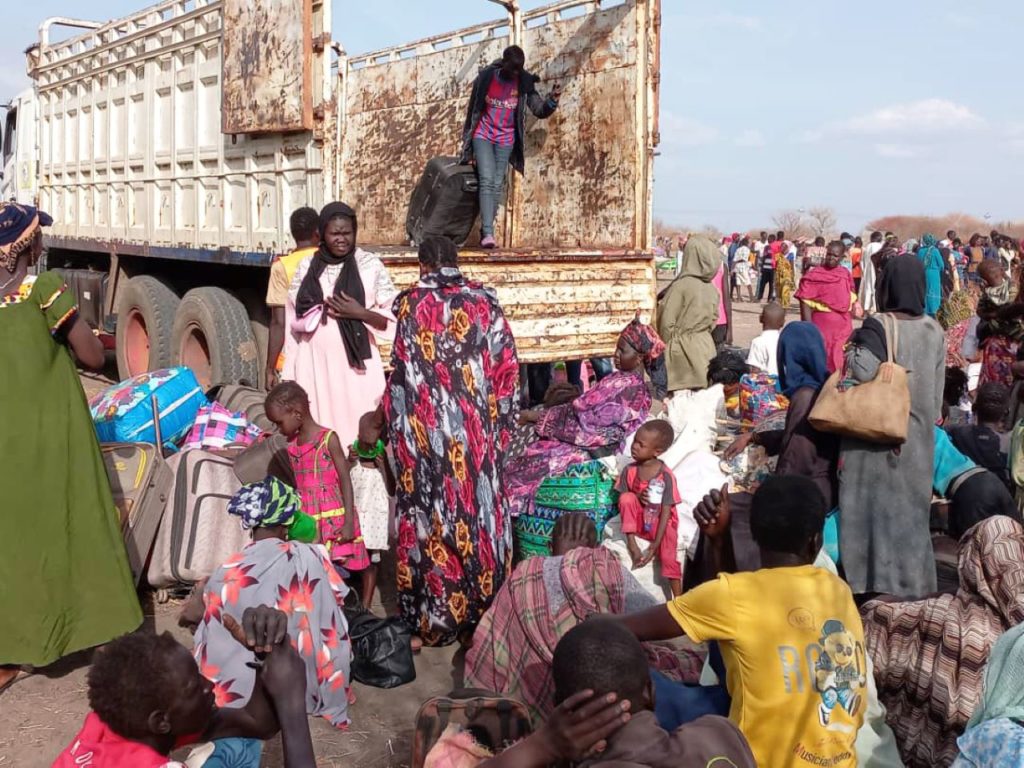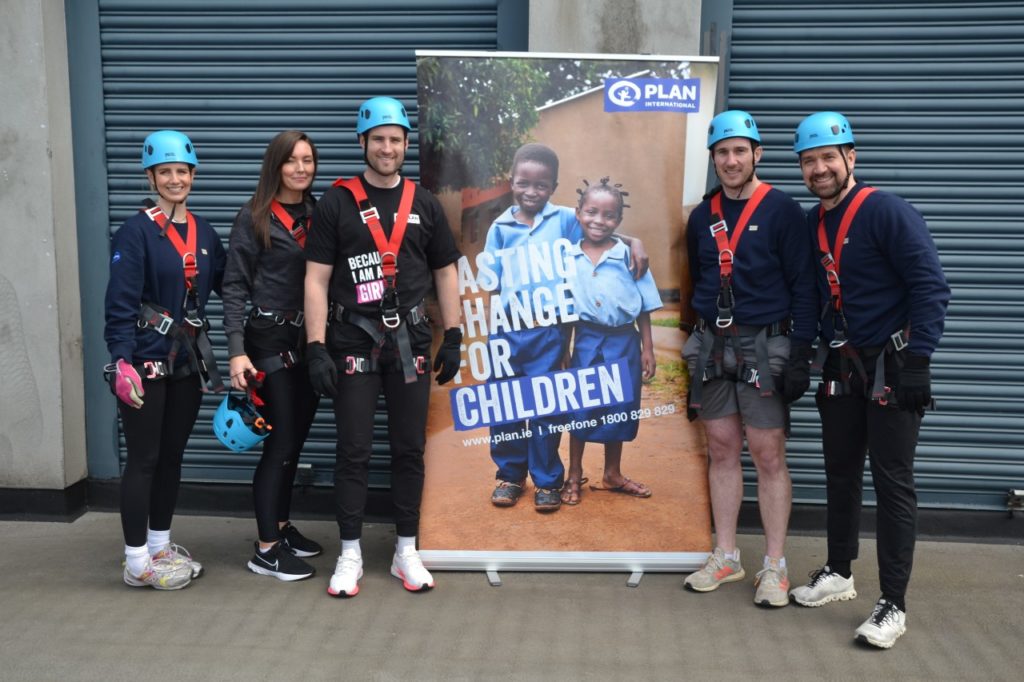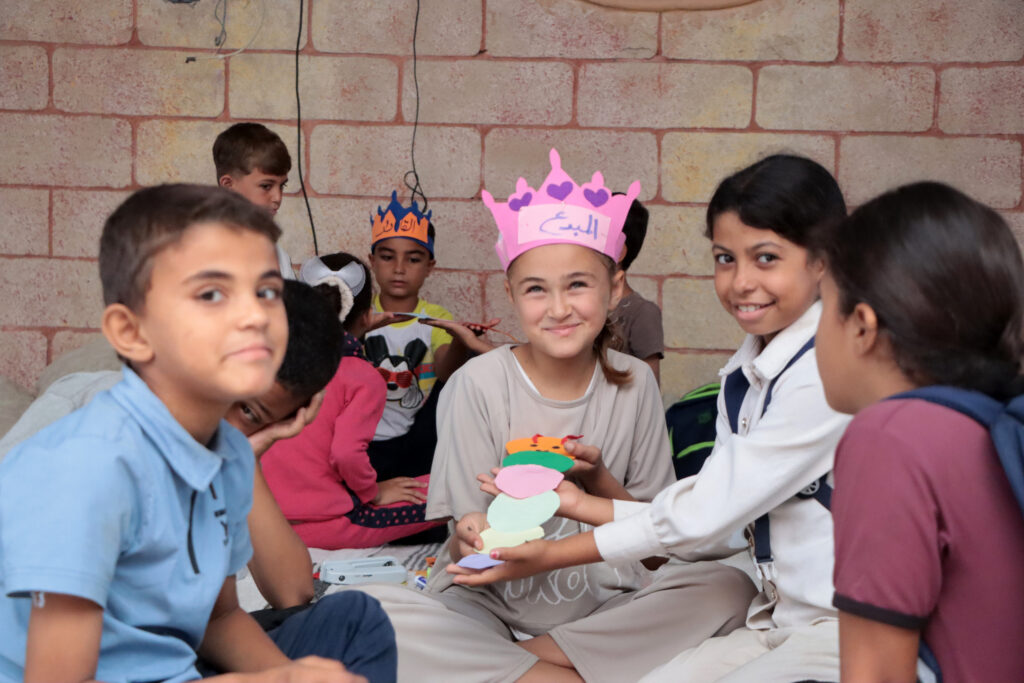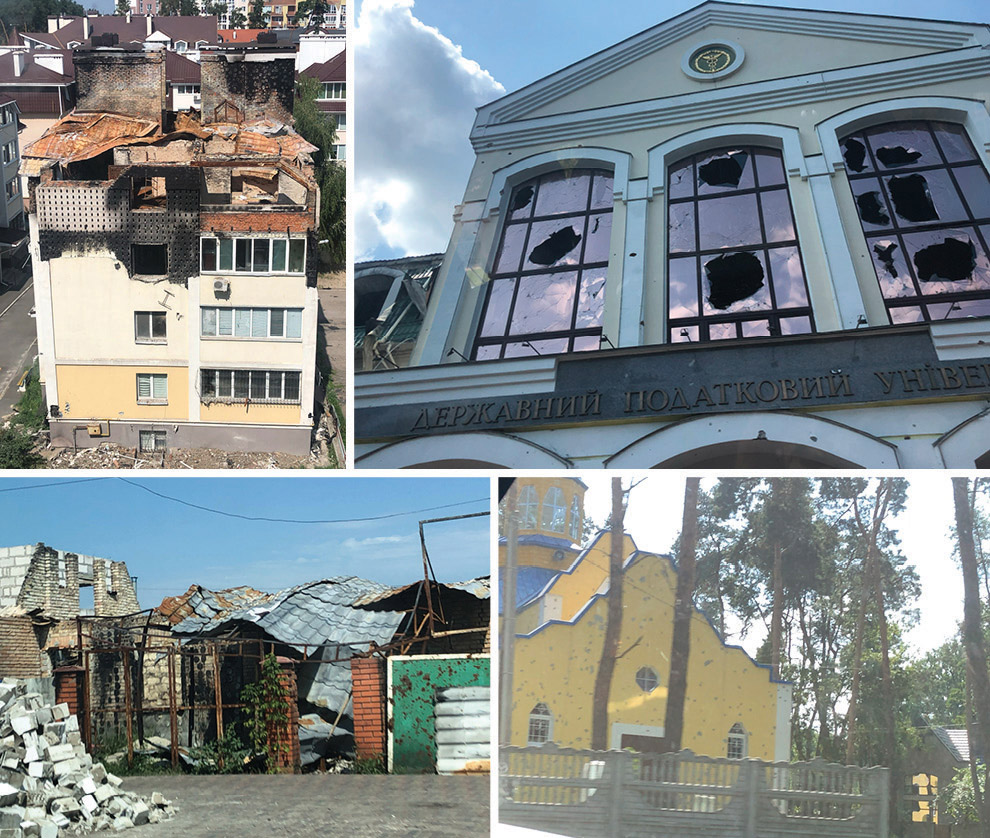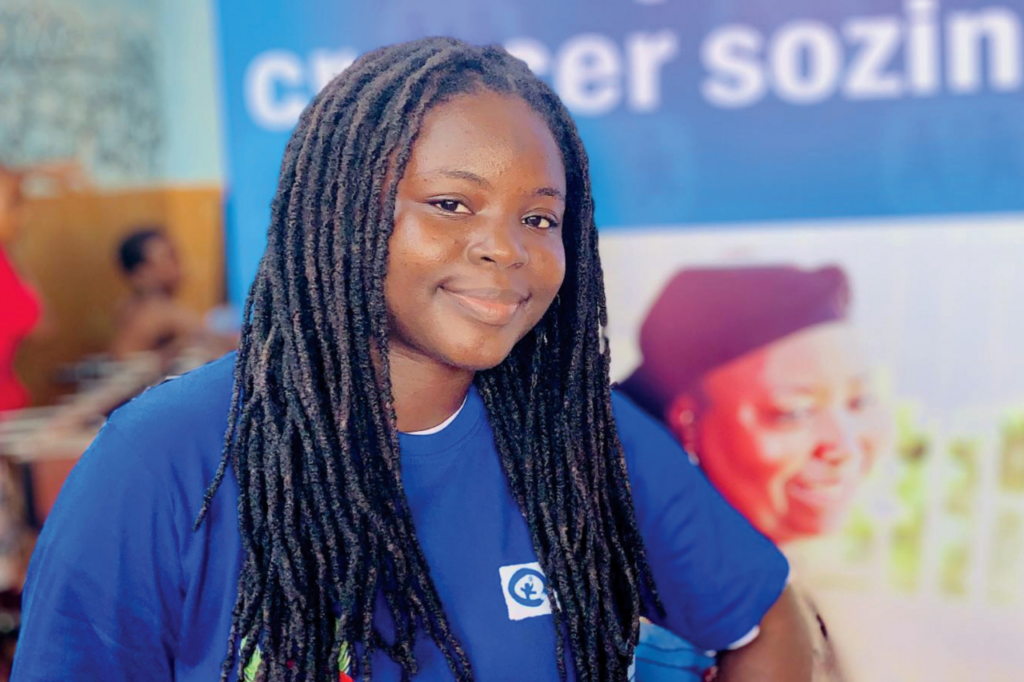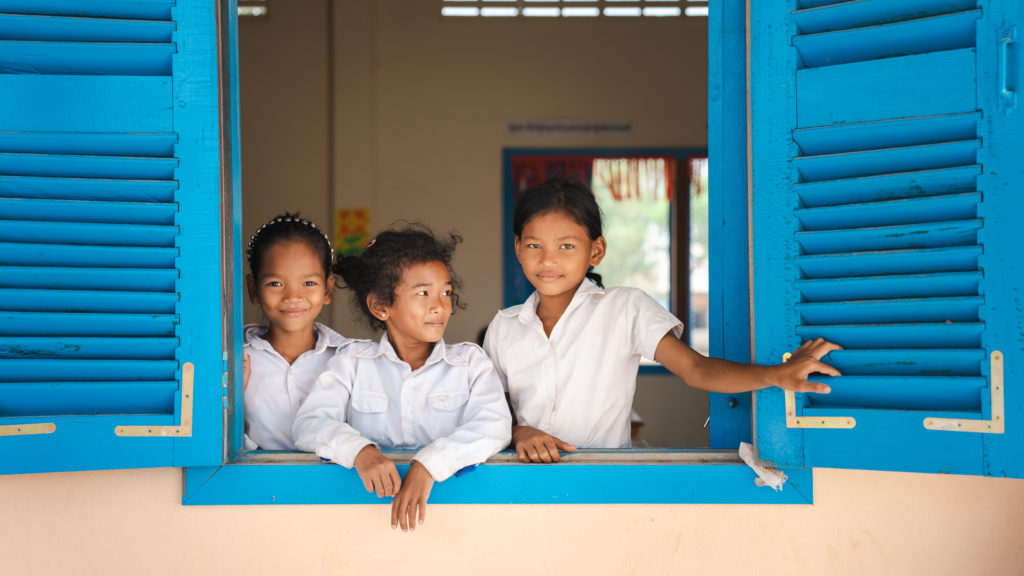The activist is fighting Female Genital Mutilation (FGM) and child marriage in Sierra Leone.
15-year-old Isatu* underwent FGM at the age of 10. When her parents died in 2015 during the Ebola outbreak, her aunt made her become a Sowei which meant that she had to become a cutter herself. In this new role she was forced to carry out the procedure on other girls – both against their will, and her own.
To add to the growing list of responsibilities imposed upon her, she was married at the age of 13. Soon after becoming a child bride, she became a child mother. However, she has not let her life circumstances define her and is now a youth activist who is determined to stamp out the practice of FGM in her country.
“I was initiated five years ago when I was 10. There was a big celebration that day. In our community when a girl is initiated, people celebrate because they say you have become clean, you have learnt a lot about the home, and you are no longer the same as those who are not initiated. So for that they cook, they dance, and they are happy.” Isatu says.
In Sierra Leone, there is still no legislation banning FGM in Sierra Leone at a national level. In the country’s Northern Province – 96.3 per cent of girls are forced to undergo the harmful practice.
“I became a Sowei when I was 11, but I didn’t want to do it. My family forced me to. I knew that there were a lot of issues with cutting people. A lot of problems. And especially that death was a risk. So that’s why I never wanted to do it. But I was forced.”
Breaking the cycle
When Isatu heard about a workshop being held by the anti-FGM campaigner Madam Rugiatu Neneh Turay, she decided to attend. She could then give up the practice of FGM and became an activist herself.
Madam Neneh, as she is commonly referred to, set up her anti-FGM organisation when she was just 22 years old, and now – with support from Plan International – is training up a new generation of activists.
“If I hadn’t attended the training organised by Madam Neneh, I wouldn’t be an activist like I am now. Before I met her, I never would have thought I could make a difference. Compared to how I used to be even just a few years ago, I can see a great difference in myself. I can do a lot now. I can go out and talk to people, which is something I never would have thought I could do before.”
Through its project Breaking the Silence, Plan International has persuaded many Soweis to down their tools in Port Loko and Bombali Districts – two locations in the country’s Northern Province FGM rates are at their highest.

“When I meet with my peers – other Soweis my age – I talk to them about the negative effects of FGM and share whatever I’ve learnt in the training. And although some are still doing FGM, there are some who have stopped because of what I’ve said. So that makes me feel happy. Especially when I speak to those who follow my advice, because if you advise someone and they adhere to what you say, you feel proud.”
The project also facilitates discussions with religious leaders, chiefs, commercial bike riders and women’s groups – who hold great influence within communities – to raise awareness of the harm the practice does so that they could also start to stamp the practice out.
“Talking about FGM is not easy though. I’ve faced a lot of backlash from people who want FGM to continue. Some of them say very abusive things to me because they don’t want to stop the practice. But I don’t let it bother me because I know what I’m doing is right and I believe that all people should listen to what people my age are saying because we do know what is good for us.”
Local police and community leaders also receive training so that they can ensure that girls are protected from harm. “I have a two-year-old daughter and I will never let her be cut. If someone tried to initiate her, I would take them to court. There is no way I would allow it.”

“My hopes for her future are that she will be able to go to school. If I had been able to stay in school myself, I would have loved to have become a teacher. But I had to drop out when I became a Sowei and I wouldn’t want my daughter to have the same life as me.”
“As I have also been affected by early marriage, I also don’t want that happening to her or any other girls and I will do my best to protect them.” Isatu concludes.
* Name changed to protect her identity.
